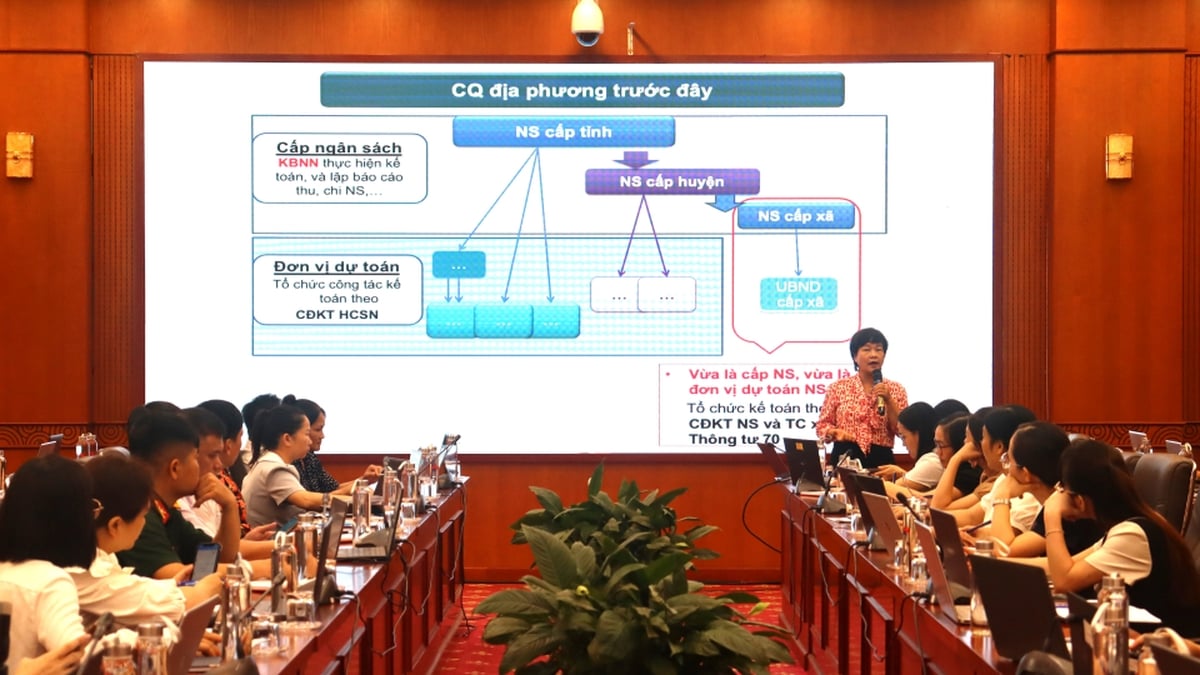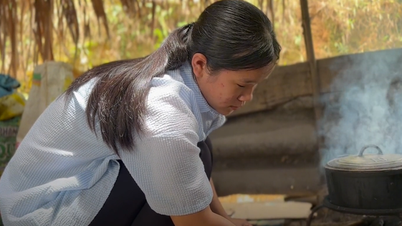“Do you know our new homeroom teacher, Ms. H? She just graduated last year!”
That information was sent by a parent in my daughter’s class zalo group on a weekend morning, making the group that had been “dormant” for the past few summer months “hot”. More than 40 parents of 25 students were closely following the situation, many of them asked about the teacher’s “profile” and gave out remarkable information: She was 23 years old, had just graduated, and was strong in external activities, culture, arts…

The probing questions “Are you a fresh graduate?”, “Have you ever been a homeroom teacher?” appear as a familiar reflex. Some parents have suggested that the school consider changing teachers because they are concerned that the lack of experience will affect the quality of teaching and learning, especially during an important school year. Some even consider… changing classes for their children.
In the minds of many parents, a “standard” homeroom teacher should be someone with solid career experience. Therefore, when faced with a teacher who is only in her early 20s, parents’ anxiety is completely understandable.
But is this worry really necessary?
It is undeniable that young teachers often lack experience in handling pedagogical situations, classroom management and coordination with parents. “Stumbles” at work are inevitable in the early stages. In particular, the role of a homeroom teacher is not only teaching but also leading, orienting and maintaining classroom discipline, so experience is an advantage.
In addition to professional issues, parents are also concerned about the ability to connect teachers and families. Does a young teacher have enough time and tact to chat and communicate regularly with dozens of parents, or is it just sending text messages?
However, experience is important, but it is not everything. In today's educational environment, where constant innovation and adaptability are required, youth is an advantage. Many young teachers quickly make a positive impression thanks to their spirit of continuous learning. They are approachable, easy to listen to students, adapt to technology and apply modern teaching methods.
Young people may lack experience, but they have time to practice and the flexibility to improve every day. Moreover, to be in charge of a class, especially a homeroom teacher, teachers must undergo a thorough assessment and selection process from the school. The fact that a young teacher is assigned this task also shows the trust of the school board.
Instead of worrying or being skeptical, parents should be more open-minded, proactively connect and create conditions for young teachers to develop. It is the trust and support from the family that will motivate them to grow, thereby creating a positive learning environment for students.
Young teachers should proactively build open and sincere relationships with parents; increase communication and share about students' learning and training situations regularly, not just when there are problems... Because in the end, both teachers and parents are aiming for a common goal: the growth and progress of students - the young buds that are growing up every day.
Source: https://baohatinh.vn/noi-niem-giao-vien-chu-nhiem-moi-ngoai-20-post293762.html






















![[Photo] General Secretary attends the inauguration ceremony of the Ministry of Public Security Headquarters](https://vphoto.vietnam.vn/thumb/1200x675/vietnam/resource/IMAGE/2025/8/16/3ceec3a24ef945c18ae2b523563b749d)

![[Photo] “Moving forward with Vietnam” on the most romantic road in Vietnam](https://vphoto.vietnam.vn/thumb/1200x675/vietnam/resource/IMAGE/2025/8/16/0ee500bc59fd4468863261ee26f47fe7)
![[Photo] Prime Minister Pham Minh Chinh talks on the phone with Cambodian Prime Minister Hun Manet](https://vphoto.vietnam.vn/thumb/1200x675/vietnam/resource/IMAGE/2025/8/15/72d3838db8154bafabdadc0a5165677f)

![[Photo] Prime Minister Pham Minh Chinh attends a special art program called "Hanoi - From the historic autumn of 1945"](https://vphoto.vietnam.vn/thumb/1200x675/vietnam/resource/IMAGE/2025/8/15/c1c42655275c40d1be461fee0fd132f3)

![[Photo] Red and yellow stars at the launching ceremony of the program "Moving Forward with Vietnam"](https://vphoto.vietnam.vn/thumb/1200x675/vietnam/resource/IMAGE/2025/8/16/076df6ed0eb345cfa3d1cd1d7591a66f)

![[Photo] National Assembly Chairman Tran Thanh Man attends the inauguration ceremony of President Ton Duc Thang Memorial House](https://vphoto.vietnam.vn/thumb/1200x675/vietnam/resource/IMAGE/2025/8/16/23555950872d428a8708a1e2f94cbf59)


































































Comment (0)